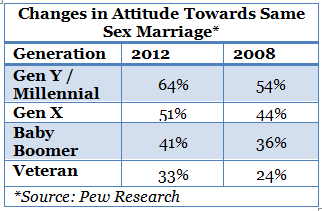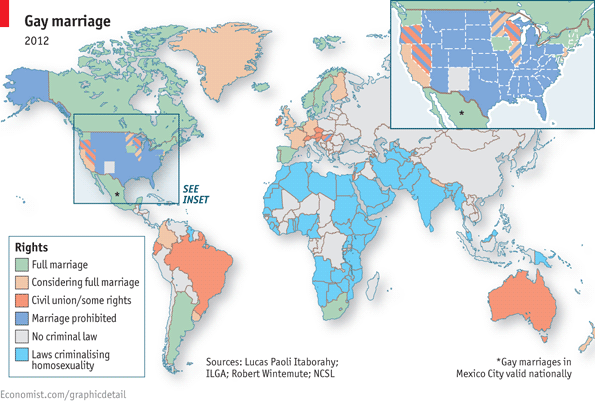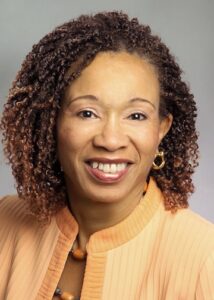Br Mary-Frances Winters
2012 was certainly a tipping point year for LGBT rights in the US and abroad. Probably the most significant event in the US was President Obama’s reversal on his previously held stand against gay marriage. Even with this controversial stand, he was re-elected, which is a testament to the fact that attitudes are definitely changing.
According to a poll conducted by CBS News on November 30, 2012 a majority (51%) of Americans approve of same sex marriage. In 2004, just 9 years ago, only 22% registered approval and 42% did so in 2009. Young people show the most approval and people over 65 show the least. Other polls, such as the one conducted yearly by Pew Research, show similar trends.

Three additional states approved same sex marriage in the November 2012 election bringing the total to nine plus the District of Columbia. All of New England, except for Rhode Island, has legislated gay marriage.
Globally, the Netherlands was the first country to legalize gay marriage in 2000. Since then, 11 countries have laws that allow same sex marriage.
France has just approved a bill to allow same-sex marriage. New Zealand, England and Scotland are all poised to pass similar legislation this year. In Spain where a gay-marriage law passed seven years ago, the Constitutional Court has now also given its approval.

From politicians to entertainers to sports figures, 2012 was a big year for gays to come out of the closet and proudly affirm their identity.
Even though same sex unions are still not legal in most states and in 78 countries gay sex is a crime, we can safely say there has been a global “sea change” in attitudes about LGBT rights.
We’ve come a long way on this topic but we certainly still have a long way to go. The Pentagon has banned websites for being “LGBT” and many companies still deny partner benefits and/or state and federal law require that the estimated value of the employer’s financial contribution towards health insurance coverage for non-dependent same-sex partners be reported as taxable wages earned. This is not the case for employees with different sex spouses.
Implications and Recommendations for D&I Practitioners:
- Put LGBT front and center in your diversity initiatives: Some companies have still not put LGBT squarely on the table for open discussion. I have had clients in the recent past indicate that they did not want to include LGBT issues in the D&I training. Now it is imperative that all employers examine their stance on LGBT, including written policies and unwritten practices. Prospective employees, both gay and straight, will increasingly make decisions based on whether the company is “gay friendly”.
- Know the laws: Be sure that you understand state and country legislation regarding employment, same sex unions etc. Gay employees in non-gay friendly states or countries may need additional support, especially now with the issue being so much in the forefront. Examine your benefits offerings to ensure equity. Some employers “gross” up salaries for non-dependent same-sex partners to equalize the benefits.
- Understand relocation impact: Relocation has become a more complex endeavor today as all employees are much less reluctant to move, just because the company wants them to. This issue for gay couples can be even more challenging if faced with decisions to relocate from a same sex marriage state or country to one that is not.
- Create an inclusive environment: Even though the laws may permit gay marriage, organizational cultures still may not be ready for open dialogue about gay relationships. Develop training and education that supports greater understanding and acceptance by all employees.

Dr. Mary-Frances Winters
Dr. Mary-Frances Winters is a leading diversity and inclusion practitioner and thought leader. She is the founder and CEO of The Winters Group, Inc., a 28 year old diversity and inclusion firm specializing in D&I assessment, education and strategic planning. Dr. Winters is the author of three books: Only Wet Babies Like Change: Workplace Wisdom for Baby Boomers; Inclusion Starts with I and CEOs Who Get It.






